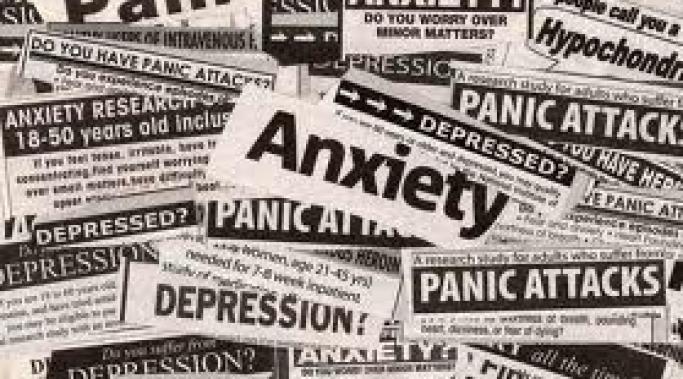I avoided Student Disability Services in college because of mental health stigma. Although I was diagnosed with various mental health conditions as a teen, it wasn’t until college that I truly realized the debilitating effect mental illness could have on my life. I was highly resistant to the idea when an on-campus counselor first advised me to make an appointment with my university’s Student Disability Services department. Sure, I needed help, but I didn’t need that kind of help.
Stigma at School
Mental illness stigma in school is a reality. Depending on where you live, school may already be back in session after the summer break or you could be waiting for that first day back to school in early September. Whatever the case, back-to-school can be a tough time for kids with mental illness whether it’s personal challenges of getting through the day or the challenge of dealing with peers. Even if your child really enjoys academics, back-to-school might cause distress. I know it did for me, so I want to offer a few tips for dealing with mental illness stigma in school since that’s what I was often most worried about.
In the first part of this three-part blog, I wrote about what stigma can look like for children and how it affects them, as well as your first step as a parent or guardian to a child in this situation, which is to make sure you are not inadvertently stigmatizing your child. In this part, let’s take a look at ways you can help your child or children understand the mental illness, stigma, and self-stigma.
More and more, people push for discussing mental health with children and to include education on mental health, mental wellness, and mental illness in the classroom and outside of it (Where is Mental Illness Education?). I wholeheartedly agree with this idea because it has the potential help children recognize mental health trouble in themselves and in others, and to know there is something that can be done if they’re struggling. Another big reason for the push is the aim to reduce stigma, but I can’t think of an instance in which it was said there should be lessons about stigma, too. Discussing mental health stigma is just as important as talking about mental illness.
Mental health stigma at school from peers can lead to bullying. Bullying can be an extremely difficult and traumatizing problem for children, especially those with mental health issues. Short term, when a child is being bullied and has a mental health problem, additional problems may add to their original diagnosis. These could be anything from social anxiety problems to depression. Further, during a child's critical formative years, mental health stigma at school (as bullying) affects the child for years to come. Here are some things you can do when your child faces mental health stigma at school.
Some people don't realize it, but mental health stigma can affect those in school or career training. This stigma, which affects people with mental health issues from elementary to post-secondary training, not only hurts the person involved when it happens, it can create barriers that keep the person from finding the right job, making a living, and having what he or she deserves--a full and productive life. Mental health stigma is almost always unfounded; for example, when people think of schizophrenia as having links to violent crime, and it is also extremely unfair to the person who is being stigmatised in the classroom. Don't let mental health stigma stop your career training or schooling.
Tomorrow morning, I get the wonderful opportunity to address the future directly.
I will be a part of The Royal’s anti-stigma project titled ‘Is It Just Me? Conversations in Mental Health’ that addresses hundreds of high school students on the topic of mental illness.
Since the tragic suicide of Canadian teen Amanda Todd, and so many others before her, I have been pondering ways in which we as a society can help the teens of today who are victims of cyber-bullying.
I was bullied in elementary school and high school. But when I got off the bus at the end of the day, my bullies didn’t follow me into my bedroom. They weren’t able to access me 24-hours a day through Facebook and other social media outlets. Sure, it affected me greatly, but I at least was able to escape.
Of course, we all want teachers to know how to explain basic math, geography and English skills to our children. But wouldn’t it be wonderful if they could also offer up some wisdom on what common psychiatric disorders consist of, and how kids can better educate themselves on how to deal with them? Both in themselves and in their classmates?








